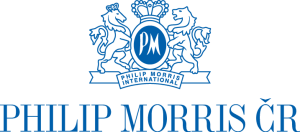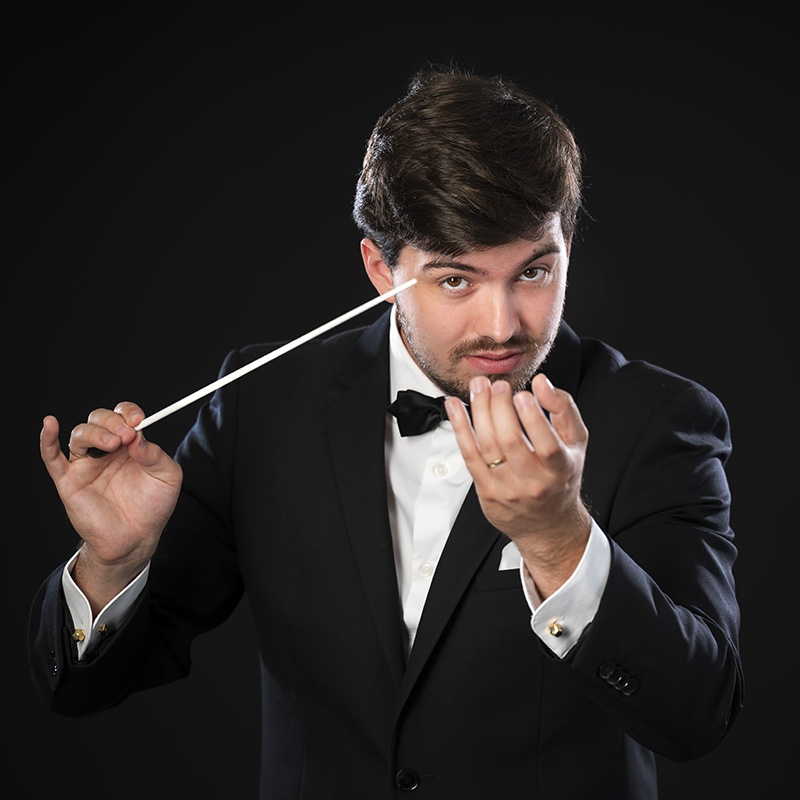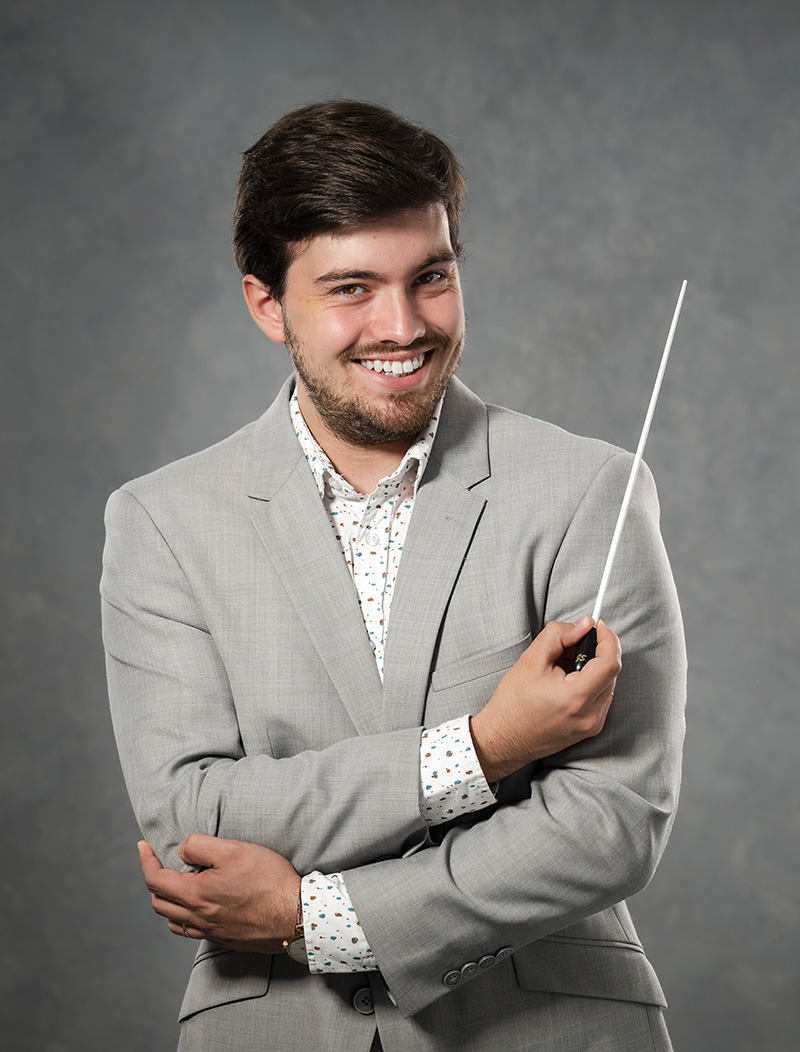Prague Spring Debut
Concert Partners
![]()

The concert is held under the patronage of the Japanese Embassy in the Czech Republic.
Programme
- Leonard Bernstein: Divertimento
- Sergei Prokofiev: Violin Concerto No. 1 in D major Op. 19
- Antonín Dvořák: Symphony No. 3 in E flat major Op. 10
Performers
- Prague Radio Symphony Orchestra
- Jan Sedláček – conductor
- Tsukushi Sasaki – violin
The Prague Spring Debut has become one of the most highly anticipated festival concerts, when the eyes of both the public and the critics are focused on the debut performance of a young male or female conductor at the Prague Spring: these artists will stand before a major orchestra for the first time, demonstrating their proficiency and talent to their audience. In 2025 the Prague Radio Symphony Orchestra will be conducted by Czech conductor Jan Sedláček, last year’s winner of the Karlovy Vary Symphony Orchestra’s Conducting Competition. In a programme combining the music of Leonard Bernstein, Sergei Prokofiev and Antonín Dvořák, they will be joined by Japanese violinist Tsukushi Sasaki, winner of the Prague Spring International Music Competition 2024.
Jan Sedláček is one of the most promising Czech musicians of the young generation. He comes from a musical family, whose most prominent member is his grandfather, Václav Mazáček, solo timpanist emeritus in the Czech Philharmonic and percussion professor at the Prague Conservatoire and Prague’s Academy of Music. “I always loved hearing grandfather talk about the music world, about conductors and composers, and about his time in the Czech Philharmonic,” Sedláček tells us. In 1976 Václav Mazáček established the Dvořák Region Chamber Orchestra (Komorní orchestr Dvořákova kraje). His grandson played in the ensemble from the age of ten, initially as a cellist; he later appeared with them as a soloist and today he conducts the orchestra.
Jan Sedláček studied the cello and conducting at the Prague Conservatoire, but by his fourth year he was already taking his exams for Prague’s Academy of Music, where he is now completing his master’s degree in conducting under Leoš Svárovský. While still a student he worked with a number of leading Czech orchestras, including the Prague Philharmonia, the Hradec Králové Philharmonic Orchestra and the North Czech Philharmonic Teplice. In January 2024 he won the Karlovy Vary Symphony Orchestra’s Conducting Competition, and in May he was assistant to Jakub Hrůša for two performances of Smetana’s Libuše at the Prague Spring, featuring the Czech Philharmonic and a stellar vocal cast.

The varied programme for Sedláček’s debut will begin with Divertimento for orchestra by Leonard Bernstein (1918–1990), a brilliant American conductor and composer inherently associated with the Prague Spring. Bernstein was a mere twenty-seven years of age when he appeared at the first year of the festival in 1946, marking his European debut. His closing concert at the Prague Spring, where he performed Beethoven’s Ninth Symphony only a few months before his death, and this amid the extraordinary atmosphere of the year 1990, was an event that resonates to this day. Bernstein wrote Divertimento in 1980 for the 100th anniversary of the Boston Symphony Orchestra, who will be appearing at the Prague Spring on 14 May. At the beginning of his career Bernstein studied under Serge Koussevitzky, Music Director of the Boston Symphony, and he was also his assistant for a time. In this sequence of eight sparkling miniatures, displaying his typical lightness and playfulness, Bernstein combines the influences of Latin American music, jazz, and the European classical tradition. Thus we can listen out for the samba, blues, the Viennese waltz, and what might conceivably be called a “variety-show” march.

“I first studied Prokofiev’s Violin Concerto No. 1 when I was 16 years old. I was attracted by its beautiful, almost dreamlike worldview, and I always wanted to perform it with an orchestra some day, so it’s a dream come true to be able to present this work in Prague,” says Tokyo-born Tsukushi Sasaki, referring to the next item on the programme. When she performed Sibelius’s Violin Concerto in the final of the Prague Spring competition, the website klasikaplus.cz praised her for “mastering the demanding tempo and expression changes without any difficulty” and for “performing her part – which, with a brief pause, is exposed for the entire movement – with assurance and with a resonant tone”. The violinist now returns to the festival to present a piece which Sergei Prokofiev (1891–1953) originally wanted to call Concertino. He began it in 1915, but because he wished to devote himself to his opera The Gambler, based on Dostoyevsky’s short novel of the same name, he interrupted his initial compositional endeavour. “I was so sorry that, because of other work, I couldn’t return earlier to the meditative, dreamy beginning of the violin concertino,” he noted later. The premiere of this lyrical and immensely colourful work was to have been held in Petrograd in 1917, but then came the October Revolution, the composer left the country and nothing came of the performance. It wasn’t until 1923 that Violin Concerto No. 1 eventually received its premiere, given in Paris by violinist Marcel Darrieux and the Paris Opera orchestra, and conducted by Bernstein’s future mentor Serge Koussevitzky. We might also mention here that Igor Stravinsky made his debut as conductor at this same concert, conducting the premiere of his own Octet for wind instruments.

With slight hyperbole we could state that the decision to include the final work on the programme for Sedláček’s debut is based on a notion that began to take shape back in his childhood. “I grew up in Kralupy nad Vltavou, not quite three kilometres from Dvořák’s birthplace, and from the age of ten I would come here for rehearsals with the Dvořák Region Chamber Orchestra, which my grandfather founded,” says Sedláček. “When I was studying the score of Antonín Dvořák’s (1841–1904) Symphony No. 9 in E minor at the Prague Conservatoire later on, I had lots of questions for my grandfather,” recalls the young conductor. “At one point, he considered something for a moment and said to me: ʽThe New World Symphony is wonderful, but have a listen to the Third Symphony. It’s not performed very much and it’s also a lovely work.ʼ From the very first time I heard it, I fell in love with Symphony No. 3 in E flat major and it remains one of my favourite pieces to this day. I’m delighted to be able to present this early work by Dvořák at the Prague Spring during my debut concert,” he adds. The symphony was something of an initiation for Dvořák himself, since its premiere in 1874, conducted by no less a figure than Bedřich Smetana, represented the first complete performance of a symphony that he had written. “Smetana spoke very positively about it and period critics – even in those early days – praised Dvořák’s wealth of ideas and huge creative imagination, qualities I have always admired in him,” states the young conductor. Sedláček’s performance of Dvořák’s exquisite work with the Prague Radio Symphony Orchestra in Municipal House on 28 May promises something truly exceptional.
The Prague Spring Debut was established in 2014 by Jiří Bělohlávek, former President of the Prague Spring’s Artistic Board and Chief Conductor of the Czech Philharmonic. It has now become a traditional platform, which enables young male and female conductors to strengthen ties with leading Czech orchestras, to demonstrate their skills before public audiences, and to gain invaluable experience. The Prague Spring Debut has played an important role in the early careers of such artists as Marek Šedivý, Jakub Klecker, Jiří Rožeň, Robert Kružík, František Macek and Marek Prášil. The first female conductor to appear in the event was Alena Hron in 2023, while the most recent debutant was Jiří Habart in 2024. The platform has also hosted two winners of the Besançon International Competition for Young Conductors in France – Jonathon Heyward and Ben Glassberg.








